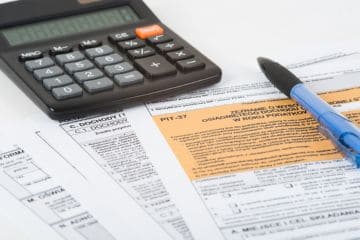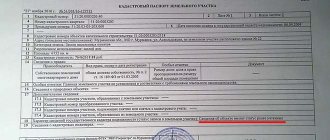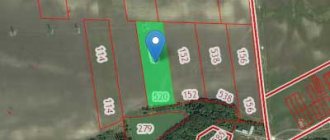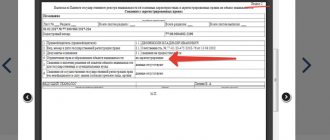Possible options for types of ownership of land plots are defined in the Constitution of the Russian Federation and established by federal legislation. The rights and obligations of owners vary depending on the form of ownership of the land plot. The type of property is established in accordance with the intended purpose of the site, the subject composition and the characteristics of the transformation of one form of ownership into another.
Basic forms of land ownership
In the Russian Federation, the following types of ownership in relation to land plots are distinguished:
- state - federal property and lands owned by federal subjects;
- municipal - land is considered the property of municipalities. It can be disposed of by local authorities; the land is located within the boundaries of the populated area. It is intended to meet the socio-cultural and everyday needs of the population of a particular settlement; it must be used strictly for its intended purpose;
- private – the owners are considered to be individual citizens and collective associations. The land can come into their possession under various conditions. At the same time, individuals and organizations can not only own and use it, but also dispose of it at their own discretion. They also have certain responsibilities;
- mixed - combines the characteristic features of several forms of ownership.
Currently, the most common forms of ownership are state and private.
Based on the form of ownership of a plot of land, certain legal requirements are established.
The concept and content of land ownership
Land ownership is a legally secured opportunity assigned to the owner to own, use, dispose of the land plot belonging to him in his own interests, as well as to eliminate the interference of third parties in the sphere of his economic domination.
Based on the definition, we can distinguish three components of authority that are included in the content of land ownership:
- The right of ownership is a legally secured possibility of economic domination over the land assigned to the owner;
- The right to use is a legally secured opportunity assigned to the owner to extract its useful properties from a land plot;
- The power of disposal is a legally secured opportunity assigned to the owner to determine the future fate of the land plot.
Rules governing land ownership
General provisions on property rights are enshrined in Chapter 13 of the Civil Code of the Russian Federation, and specifically the right of ownership of land and other property rights are regulated by Chapter 17 of the Civil Code of the Russian Federation.
The Land Code of the Russian Federation (Chapter 3) regulates special norms, for example:
- rights of citizens and legal entities to land;
- rights of foreign citizens;
- State property;
- Federal property;
- property of constituent entities of the Russian Federation;
- municipal property.
Characteristics of private property
Private ownership implies the ownership of land by an individual, several citizens who are united by the status of a legal entity, as well as a partnership.
Any land can be converted into personal property. The exception will be those that are officially excluded from circulation or limited.
Such territories include protected areas and areas of the country's forest fund.
In addition to the land plot itself, a citizen owns buildings, trees and other plantings on the territory of the land plot.
The property may include small enclosed bodies of water located on the property.
A distinctive feature of private property is its intended purpose . Goals could be:
- gardening;
- running a personal household;
- construction of a house and other outbuildings;
- construction of a summer house or garage.
You can become a full owner of land if the following conditions are met:
- when receiving a plot as a gift or inheritance . Land belongs to the list of real estate that is allowed to be transferred by gift or on the basis of a will;
- by privatization , which means the transfer of a site from state or municipal property to private property. Citizens can officially register their rights to a land plot that they received free of charge during the Soviet era, when there were no private holdings. The dacha and forest amnesty programs make the privatization procedure accessible to most citizens;
- when completing a purchase and sale transaction . You can buy a plot not only from other citizens, but also from the state by taking part in the auction;
- if exchange transactions or other legal processes in relation to real estate have been carried out.
Owner status will need to be registered in accordance with the law. Information about the plot and its owner is entered into a unified real estate register.
Based on Art. 209 of the Civil Code of the Russian Federation, the right to private property implies:
- possession – the ability to own real estate in accordance with the requirements of the law;
- use - the right to exploit land to obtain any profit and consumer products. This right applies to objects that are the actual property of the owner;
- disposal - the possibility of alienation, transfer by inheritance or under a lease agreement and other options for transferring property to another person.
The owner has the right to dispose of the property at his own discretion. He can sell or give away the plot or a specific part of it for free. The right of disposal also applies to buildings located on the territory of the land plot.
Citizens can give up ownership of a plot on a voluntary basis or unite with other owners to create common property.
The state has the right to limit the powers of the owner. The site may be withdrawn for state or municipal needs, while its value will be reimbursed according to the state assessment.
If the owner commits any offenses, he may be deprived of ownership of the land based on a court decision. No monetary compensation is paid.
The right to land comes upon its registration and entry of the plot into the real estate register.
The owner has the following responsibilities:
- filing a tax return within the deadlines established by law;
- payment of land tax on time;
- compliance with all laws regarding land;
- use of land exclusively for its intended purpose;
- carrying out all activities that can ensure the safety of the land plot.
There are 2 types of private land holdings:
- individual – for individuals and legal entities;
- general - divided into shared and joint.
Land can become common on the basis of certain legislative acts or under an agreement when individual land plots are connected by mutual decision of their owners.
We remind you that even if you thoroughly study all the data that is in the public domain, this will not replace the experience of professional lawyers! To get a detailed free consultation and resolve your issue as reliably as possible, you can contact specialists through the online form .
Features of land ownership
The specifics of land ownership are established by the Land Code. They should not contradict the general norms in the Civil Code of the Russian Federation.
- Not all land plots may be privately owned. The list of such lands is established by the Land Code and other Federal Laws;
- Citizens who own land must have legal capacity and capacity.
The legal capacity of a citizen is his ability to have civil rights and bear responsibilities (civil capacity). It is recognized equally for all citizens. The legal capacity of a citizen arises at the moment of his birth and ends with death (Article 17 of the Civil Code of the Russian Federation). Private property of individuals is characterized by the transfer of rights by inheritance, which also implies the possibility of disposing of property in the event of death by drawing up a will, acquiring rights by paying a share by a member of a housing, housing construction, country house, garage or other consumer cooperative, etc. - When transferring ownership from one owner to another, the land plot participates in turnover according to the principle of the unity of fate of the land plot and the property located on it. That is, if the owner sells a building or house, then upon sale the rights to the land plot are transferred to the buyer.
- Ownership of a land plot must be obtained as a result of legal facts, since according to Article 16 of the Land Code of the Russian Federation, if the land is not private or municipal, then it is considered state property.
- Some land plots have their own characteristics regarding the regulation of property rights. For example, agricultural land. You will learn more about these features by reading this article.
About municipal property
There are 2 options for owning municipal land plots:
- for each owner a certain plot is allocated, the owner of which he becomes (shared form of ownership);
- a specific share is not established, and all land is considered common property.
This type of ownership is typical for gardening associations, farms and peasant households, housing and garage cooperatives, and cooperative agricultural organizations.
The intended purpose of such lands is to meet the agricultural and communal needs of the population. The owner has the right to sell his share in municipal property, but first he must offer it to other shareholders of the farm.
What is common shared ownership of a land plot?
Common shared ownership implies that a specific piece of land is jointly owned by several persons - two, three or more.
It also happens that land is owned by dozens of people at the same time. Often such land plots have an agricultural purpose and were registered back in the days when collective farm lands were redistributed.
Owners have equal rights when disposing of common property. It is also allowed to demand the allocation of one’s share from the total.

This type of land ownership came to the modern Russian Federation from the past - the Soviet Union, when various state and collective farms were still popular in the 80s.
That time was characterized by the rapid development of gardening, horticulture and agriculture in the vastness of our large country.
When agriculture began to gradually fade, former workers of collective and state farms began to look for ways to solve the problem of the profitability of such types of land plots.
Many have come to the unequivocal conclusion that it is possible to receive a stable profit if you separate your part from the common shared property.
According to the current legislation (Civil Code of the Russian Federation), the owner of this type of land plot may demand that his share be allocated to him from the total.
The most frequently cited main reasons are:

- Creation of your own subsidiary farm on an allocated share of land.
- Organization of personal farmland.
- Renting out your share of the land.
It is worth remembering that demanding to allocate your share from the total is the legal right of everyone, and according to legislative norms (252 of the Civil Code of the Russian Federation), you are not obliged to voice the exact reason for such a decision.
Common property can be of two types:
- General, without allocating shares for each participant.
- With the allocation of shares from the common one for one or more persons.
Features of state ownership
In Art. 125 of the Civil Code of the Russian Federation states that all land that is not included in the categories of private and municipal ownership is considered state-owned. At the same time, ownership is possible at the federal level and the level of constituent entities of the Russian Federation.
The rights of the state extend to:
- on lands allocated for research work;
- to protected and park areas;
- to areas that ensure the security of the country;
- to areas allocated for the operation of space systems for nuclear energy;
- to other lands specified in the Constitution of the Russian Federation.
The state has the right to transfer such lands to municipalities or private individuals on the basis of a lease agreement for construction or cultivation of crops. The powers of the state include the ability to buy private lands put up for sale.







